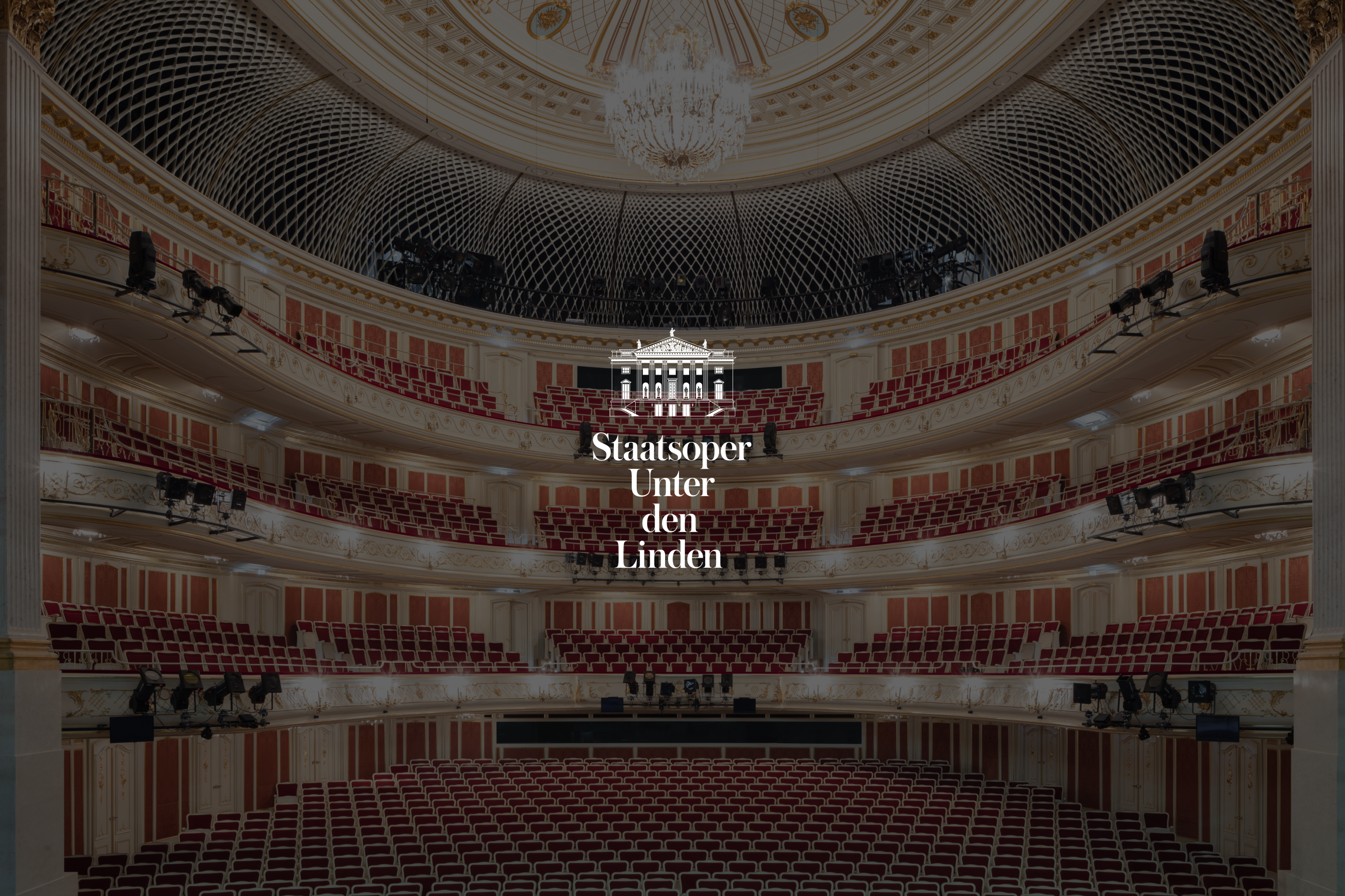Staatsoper Unter den Linden
Der Rosenkavalier
Opera
Unter den Linden 7, 10117 Berlin
Richard Strauss














Description
The Viennese aristocracy are no strangers to family feuds: boorish Baron Ochs auf Lerchenau interrupts the morning tête-à-tête between his cousin, the Marschallin, and her young lover Octavian, to ask for her help with his wedding plans, which are steered more by financial gain than love. Ochs does not suspect that Octavian himself, who is chosen to deliver the engagement rose, will eventually fall in love with the bride.
After his dramatic one-act works »Salome« and »Elektra«, which were based on ancient myths, Richard Strauss was drawn to lighter, more cheerful material for his next opera in the style of Mozart’s comic operas. His change of direction was embraced by Hugo von Hofmannsthal whose libretto created an artificial, rococo Vienna with customs and dialects as convincing as they are imaginary, which Strauss refined with anachronistic waltzes. This fantasy Vienna, bursting with joie de vivre, wit and traditional class boundaries, but which also bears traces of depression and morbidity, is not merely a reflection of the 18th century but also of the declining belle époque.
Strauss’ score offers the full range of rich orchestral timbres with an unrestrained indulgence that culminates in the unsurpassed closing section: yet deep ruptures also appear. Only a few years before the collapse of the Habsburg monarchy, »The Rosenkavalier« is a swansong to an entire epoch.
SYNOPSIS
Act I
After a joint night of lovemaking, the “Feldmarschallin” Princess Werdenberg and her young lover Count Octavian Rofrano awaken. Breakfast is interrupted by an approaching male voice: despite their fears, it is not the Feldmarschall returning unexpectedly early, but Baron Ochs auf Lerchenau, a poor cousin of the princess from the countryside. While Octavian dresses up as a chambermaid, Ochs reports to the Feldmarschallin of his plans to marry. Normally not one to leave any mischief undone, he now wants to consolidate his finances by marrying Sophie, the daughter of the newly ennobled, extremely wealthy bourgeois Faninal. For this, he asks Marschallin to suggest the name of a noble Rosenkavalier (rose-bearer), who on the morning of their wedding could announce the arrival of the bridegroom by delivering a rose to the bride. The Marschallin suggests Octavian, and she shows him a portrait of the count. He is surprised at the similarity to the chamber maid “Mariandl”, on whom he has already cast his eye and invited to dine with him.
At the Marschallin’s morning audience, there is quite a hullabaloo: several supplicants, an Italian tenor and a paper artist come and go. Ochs argues with the notary on the details of the wedding contract, the scheming gossipers Valzacchi and Annina offer Ochs their services.
The Marschallin has everyone cast out and is left behind in a melancholy mood. She thinks about the young Sophie, who is about to enter a marriage of convenience just like her own, and her own aging. She sends off Octavian, now dressed in his normal attire, saying that he will sooner or later leave her for a younger woman.
Act II
At the Faninal home, all await the arrival of the Rosenkavalier. Faninal looks forward to the social advancement that is linked to the marriage, the governess Marianne Leitmetzerin muses about the good match and Sophie about marriage in general. Octavian arrives and hands Sophie the rose, but both feel immediately attracted to one another, which puts them in an awkward situation. Sophie feels no attraction at all for her soon-to-be betrothed, who then arrives with his coarse manners.
While Faninal and Ochs dedicate themselves to signing the marriage contract, Octavian and Sophie admit their attraction to one another. Valzacchi and Annina spy them kissing in secret. Ochs does not become angry, not even when Octavian tells him that Sophie does not want to marry him. When the furious young rival challenges him to a duel and grazes him slightly with his rapier, mayhem breaks out. Faninal tosses Octavian out, fears social scandal and wants to force his insolent daughter to marry.
In the meantime, Ochs has recovered and curses Octavian and everything about city life. His mood improves when Annina brings him a letter from “Mariandl” accepting his invitation.
Act III
Ochs receives “Mariandl” to dinner and tries to create a romantic atmosphere. But during his attempts to woo her, he feels unpleasantly reminded of Octavian. Strange occurrences increasingly unsettle him until Annina arrives in costume with children in tow, claiming to be Ochs’s abandoned wife. The ruckus catches the attention of the police. The policeman interrogates Ochs, who, feeling caught in a corner, presents “Mariandl” as his betrothed, Miss Faninal. But then the real bride and her stunned father arrive, and the latter faints. While “Mariandl” turns back into Octavian, the Feldmarschallin surprisingly arrives on the scene. She assuages the policeman, clears up the masquerade, calls off the marriage plans and insists that Ochs take his leave.
The Feldmarschallin remains behind with Sophie and Octavian, and immediately notices their feelings for one another. She gives in and releases Octavian from his promises to her. But will Octavian be happy with Sophie?
---
Der Rosenkavalier - Opera in three acts by Richard Strauss
Libretto by Hugo von Hofmannsthal
In German language with German and English surtitles
Cast
Dates
Staatsoper Unter den Linden
Unter den Linden 7, 10117 Berlin
To enable Google Maps please accept functional cookies.

Your new app
ClassicCard
Get the free app directly on your mobile:
- Browse and book all concerts, operas and ballet events in Berlin
- Save up to 90% thanks to our permanently low prices
- Network with the community and share your experience




